DuoScope Advantages
The main advantage of the DuoScope system is the weight reduction compared to a conventional assembly, where the secondary telescope or camera is mounted on the main telescope and its weight must be compensated with the addition of counterweights on the bar.
With DuoScope the secondary telescope and/or camera is/are fixed to the bar, replacing the counterweights, so that it may even reduce the original weight of your mount.

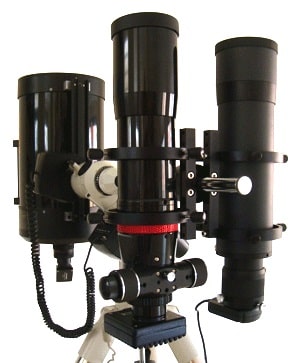
If you plan to do astrophotography, good advice is not to exceed half the maximum load capacity of the mount recommended by the manufacturer.
It turns out that, in most commercially available starter combinations of telescope and mount, the weight supported is often close or beyond this limit. If you also add a telescope or a camera (or both) over the main telescope and extra counterweights to balance the whole, you can easily verify that this advice is really difficult to follow.
DuoScope solves this problem by providing multiple configurations and possibilities.
On the other hand, you will appreciate not having to carry unnecessary weight on your next observation and astrophotography session!
DuoScope DuoScope “modular” system
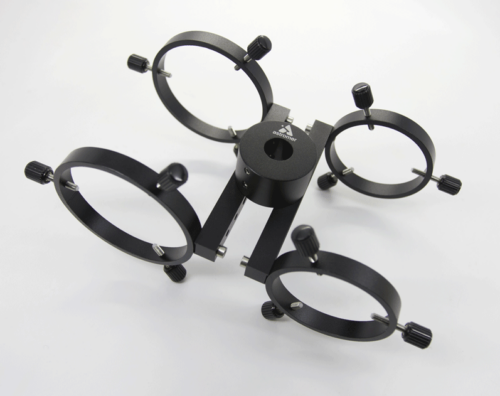
All DuoScope models can be converted to any other quickly and easily with the available accessories. So if in the future you want to change your configuration, you don’t have to buy a complete system again, but only those accessories you need.
The manuals (manual DuoScope Swivel / VX and manual DuoScope DuoScope One-T / One-C / Two-T / Mix, only Spanish version for the moment).
DuoScope installation in your mount
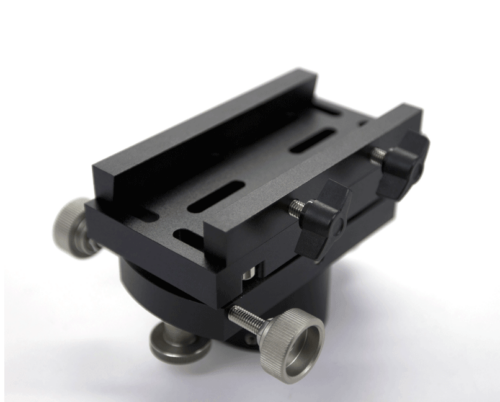
DuoScope can be fitted in minutes in a simple manner and can be assembled and disassembled many times as desired to transport.
Does DuoScope fit in my mount? The best way to find out is to measure the countershaft diameter, using a caliper (or a rule to measure in the end tip of the shaft). If you still not completely sure use as a guide this Mount table.
NOTE: DuoScope is available for 18 and 20mm. counter-shaft diameter. For other measures, please don’t hesitate to contact at info@lunatico.es us and we will send you a customized budget.
The DuoScope family
DuoScope Swivel allows you to easily attach a telescope or a camera to the end of the bar.
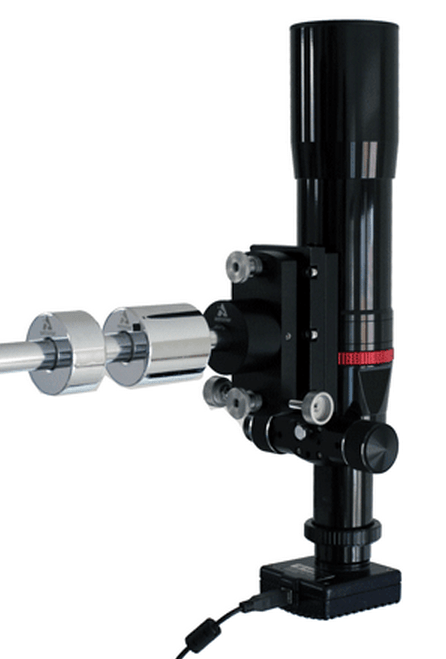 It also provides a precise orientation to align the secondary scope to the primary telescope or to point a nearby guide star.
It also provides a precise orientation to align the secondary scope to the primary telescope or to point a nearby guide star.
It offers controls for positioning declination with a range of ±9º and elevation with ±6º. Once the desired position is reached, it can be blocked, providing high rigidity and no play at all.
You can attach a screw mount telescope and given its versatility it also allows other intermediate fastening elements.
If your telescope has a Vixen type dovetail mount you may opt for the VX version.
In the picture (right side), this telescope can be used as a guide to the main one. Vice versa, you can photograph with the secondary while guiding with the main telescope.
We recommend this option at the beginning while, as the focal distance diminishes tracking is less demanding. This will always depend on the focal length, overall rigidity, and precision of your mount.
Another interesting use is multiple focal length astrophotography.
This is an increasingly used technique for the subsequent composition of wide-field images with the main object in detail.
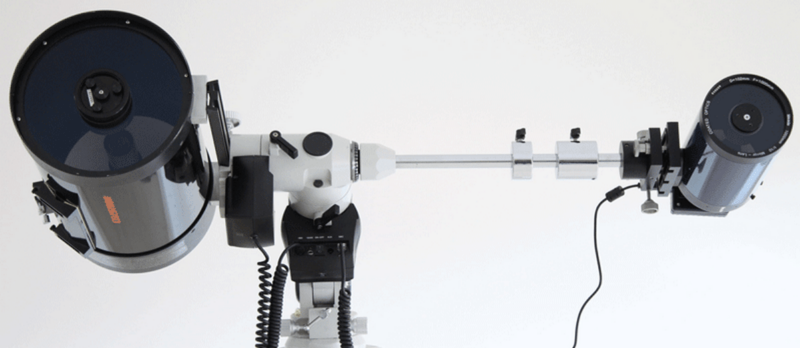
DuoScope One-T attaches with rings a telescope to the end of the counterweight bar.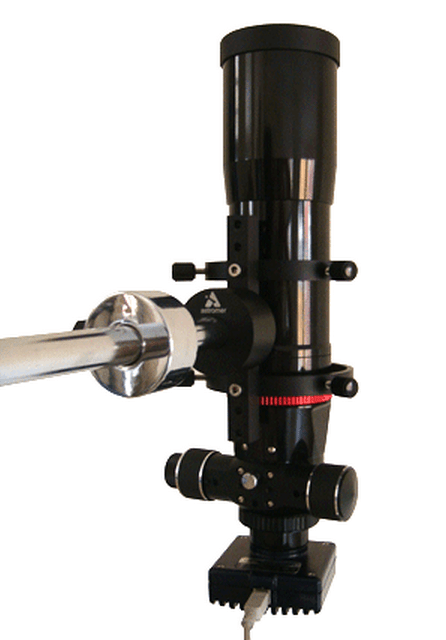
The rings are available for internal diameters of 80mm and 100mm, that is, for telescopes with an aperture between 50mm and 80mm.
The support provides several mounting positions for the rings, even the distance between them is adjustable.
DuoScope Two-T attaches with rings two telescopes to the counterweight bar of your mount, you can also move it along the bar until you reach the balance position.

One of the main uses is guiding with one of the telescopes and astrophotography through the other, leaving free the main telescope to enjoy the search for visual objects.
NOTE: Due to the overall system width, it could interfere with one of the tripod legs, we recommend to program the R.A. limits of your mount to prevent any damage. On pier mounts this possibility is non-existent and the system is perfectly suited.
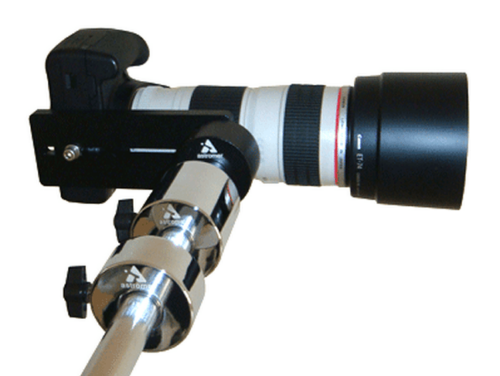 DuoScope One-C attaches a camera in any position of the counterweight bar.
DuoScope One-C attaches a camera in any position of the counterweight bar.
If you use a heavy telephoto lens you can place it at the end of the bar and then balance it using the available slot.
DuoScope-MIX attaches both a telescope and a camera in any position of the counterweight bar, so you can adjust its position until the balance is reached.
The camera can also be adjusted on the slot to obtain a declination balance.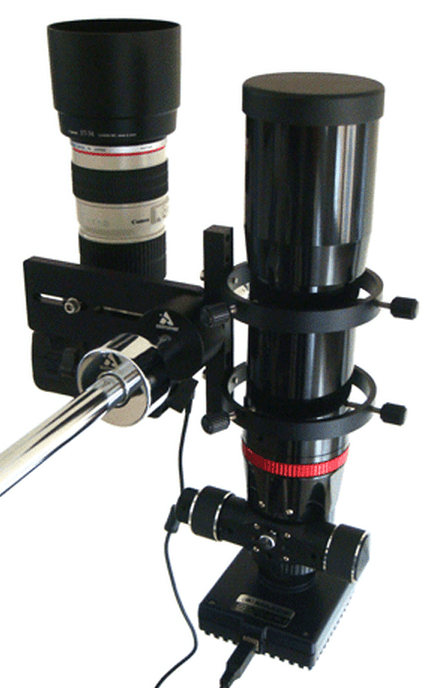
NOTE: Due to the overall system width, it could interfere with one of the tripod legs, we recommend to program the R.A. limits of your mount to prevent any damage. For pier mounts in the absence of such a possibility is a perfectly suited system.
This version is the most versatile, since it can also be mounted with just the camera adapter: as DuoScope-One-C, or with just the telescope adapter as DuoScope-One-T.
